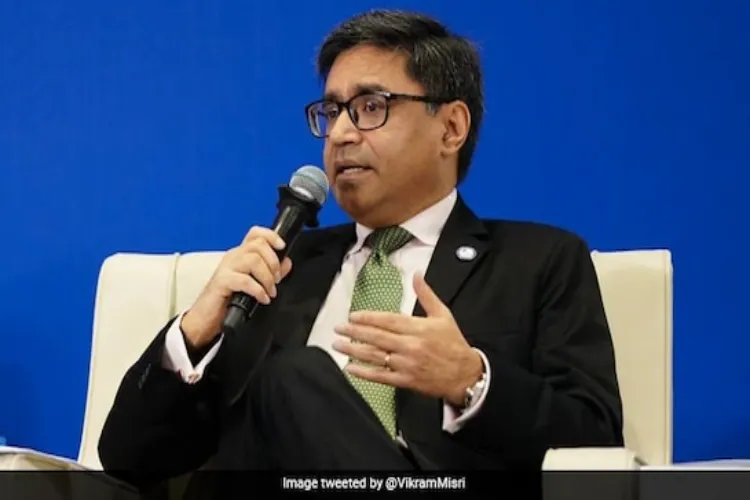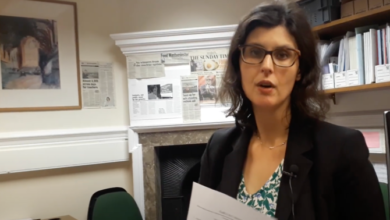In a major escalation move, India on Wednesday suspended the Indus Waters Treaty (IWT) with Pakistan with immediate effect in the wake of an attack in occupied Kashmir’s Pahalgam a day ago. Pakistan, in response, has convened a meeting of the National Security Committee to deliberate the resulting situation.
In other announcements, it said the Attari border check post was closed; Pakistanis in India under the Saarc Visa Exemption Scheme had 48 hours to leave the country, while others could return by May 1; defence personnel at the Pakistani High Commission in India had a week to leave the country and staff at the high commissions would be reduced as well.
The attack took place in Pahalgam — a tourist hotspot in the scenic Muslim-majority territory that draws thousands of visitors every summer — and at least 26 people were killed, all men, while police said another 17 people were injured, when gunmen opened fire on visitors in the popular destination, AFP reported, citing a hospital list of the dead that was verified by police. It was the region’s deadliest attack on civilians since 2000.
The Indian government had vowed that a “loud and clear” response would be delivered to the attack. Meanwhile, Pakistan had expressed concern over the incident.
What we know so far:
- India suspends Indus Waters Treaty, closes Attari border check post
- PM Shehbaz convenes meeting of National Security Committee for Thursday
- Indian defence minister vows “loud and clear” response
- All gunned down were men from across India, barring one from Nepal
- Heavy security near site as India launches search operation, claims killing 2 in ‘infiltration attempt’
- Trump offers Modi ‘full support’ as China, others condemn incident
- Modi to convene security cabinet meeting in evening
- Call for shutdown in occupied Kashmir in protest against attack
Addressing a press conference on the matter today, Foreign Secretary Vikram Misri of India’s Ministry of External Affairs (MEA) said the Cabinet Committee on Security (CCS), India’s highest decision-making body on national security, held a meeting today under Prime Minister Narendra Modi on the incident.
“In the briefing to the CCS, the cross-border linkages of the terrorist attack were brought out. It was noted that this attack came in the wake of the successful holding of the elections in the union territory and its steady progress towards economic growth and development. Recognising the seriousness of this terrorist attack, the CCS decided upon the following measures: the Indus Waters Treaty of 1960 will be held in abeyance with immediate effect until Pakistan credibly and irrevocably abjures its support for cross-border terrorism.”
The Indus Water Treaty is a water-sharing agreement between Pakistan and India, facilitated by the World Bank. It allocates the waters of the Indus River system between the two countries. It established the India-Pakistan Indus Commission, which is supposed to resolve any problems that arise.
As per Article XII subsection 4 of the Indus Waters Treaty, the provisions of the agreement will “continue in force until terminated by a duly ratified treaty concluded for that purpose between the two governments”.
India blames Pakistan for pushing fighters across the heavily militarised Line of Control (LoC) between the two countries to launch attacks on Indian forces. However, Islamabad has repeatedly denied the allegation.
Defence Minister Khawaja Asif had categorically ruled out Pakistan’s involvement in the incident in an interview earlier today.
Responding to media queries concerning the attack earlier today, Foreign Office Spokesperson Shafqat Khan in a statement said: “We are concerned at the loss of tourists’ lives in an attack in Anantnag district of Indian Illegally Occupied Jammu and Kashmir. We extend our condolences to the near ones of the deceased and wish the injured a speedy recovery,” he added.
In his other announcements, the Indian foreign secretary said movement at the Attari border check post would be closed with immediate effect. “Those who have crossed over with valid endorsements may return through that route before May 1, 2025,” he added.
The border closure is hugely symbolic — it is on the Attari-Wagah crossing that crowds gather each evening to cheer on their nation’s soldiers as they goose-step in a chest-puffing theatrical ritual symbolising the countries’ rivalry. The daily border ritual, which began in 1959, has largely endured, surviving innumerable diplomatic flare-ups and military skirmishes.
“Pakistani nationals will not be permitted to travel to India under the Saarc Visa Exemption Scheme,” the Indian foreign secretary said, adding that all such visas issued in the past were deemed cancelled and any Pakistani in India under the scheme had 48 hours to leave the country.
“The defence, military, naval and air advisers at the Pakistani High Commission in New Delhi are declared persona non grata. They have a week to leave India. India will be withdrawing its own defence, navy and air advisers from the Indian High Commission in Islamabad,” he said, adding that the posts were deemed annulled and their support staff would be withdrawn as well.
He also said the overall strength of the high commissions would be curbed to 30 from the present 55 through further reductions to be implemented by May 1.
“The CCS reviewed the overall security situation and directed all forces to maintain high vigilance. It resolved that the perpetrators of this attack will be brought to justice and their sponsors held to account.”
He said India would be “unrelenting in the pursuit of those who have committed acts of terror or conspired to make them possible”.
In his interview with Hum News today, Asif termed the incident a “false flag operation”. “We cannot ever rule this out, the possibility [that it was a false flag] will be there,” he said.
He added that allegations levelled against Pakistan were unfounded.
“There are plenty of homegrown organisations within India,” Asif said. “We condemn terrorism in all its forms, since Pakistan has been the most affected by terrorism. We are the last country that would support terrorism after the effect it has had on us.”
When asked if Pakistan would be able to provide a military response, Asif recounted when Indian aircraft conducted a bombing in Balakot in 2019.
“Everyone remembers what happened with Abhinandan,” Asif said, referring to an Indian pilot shot down and captured by Pakistani forces.
Deputy Prime Minister and Foreign Minister Ishaq Dar announced that Prime Minister Shehbaz Sharif had convened a meeting of the National Security Committee on Thursday morning to respond to the Indian actions.







